Qatar hits back at Germany over criticism of World Cup host’s rights record
Qatar's foreign minister has decried Germany’s "double standards" over its criticism of the World Cup host's human rights record, saying the European country doesn’t raise the issue when it comes to energy partnerships or investments.
Sheikh Mohammed bin Abdulrahman Al-Thani defended the summoning of the German ambassador that followed the remarks of Interior Minister Nancy Faeser in which she said a country’s compliance with human rights should be factored into the selection of World Cup host.
Qatar has been criticized over its treatment of migrant workers building World Cup facilities.
Earlier this month, the UN labor agency said Qatar has carried out "significant" reforms that have "improved the working and living conditions for hundreds of thousands of workers", adding that the measures were having an impact across the Arab countries of the Persian Gulf region.
"On the one side, the German population is misinformed by government politicians; on the other, the government has no problem with us when it comes to energy partnerships or investments," Sheikh Mohammed bin Abdulrahman Al-Thani told the Frankfurter Allgemeine Zeitung newspaper in an interview on Monday.
"We are annoyed by the double standards," he said, noting that Doha had faced a systematic campaign against it since being selected to host the World Cup in 2010 that he said no other country had faced.
"It is ironic when this tone is struck in countries in Europe that call themselves liberal democracies. It sounds very arrogant, frankly, and very racist," Al-Thani said.
Al-Thani described calls for security guarantees for minorities - which Faeser had requested as a prerequisite before agreeing to attend the World Cup - as superfluous.
He added that the German politicians should focus more on hate crimes occurring on their own soil.
Qatar’s rights record has come under scrutiny since 2014 when international unions made an official complaint about the country.
The International Labor Organization (ILO) established a temporary office in Doha since then, but it is expected to become permanent as the agency said Qatar has made such a request.
It would be the first full office in a region where conditions for migrant workers are regularly criticized.
VIDEO | Press TV's news headlines
VIDEO | Tehran hosts gathering highlighting shared belief in promised savior
VIDEO | Iran, Oman discuss regional developments, bilateral ties
VIDEO | Russia 2024 Review - Putin’s reelection, BRICS+, terrorism highlight the year
VIDEO | Qasem Soleimani: An Immortal Legacy
VIDEO | Gaza beset by calamities
825 Israeli forces killed in Gaza since war started: Daily
VIDEO | Jordanians condemn Israeli attack on Kamal Adwan hospital


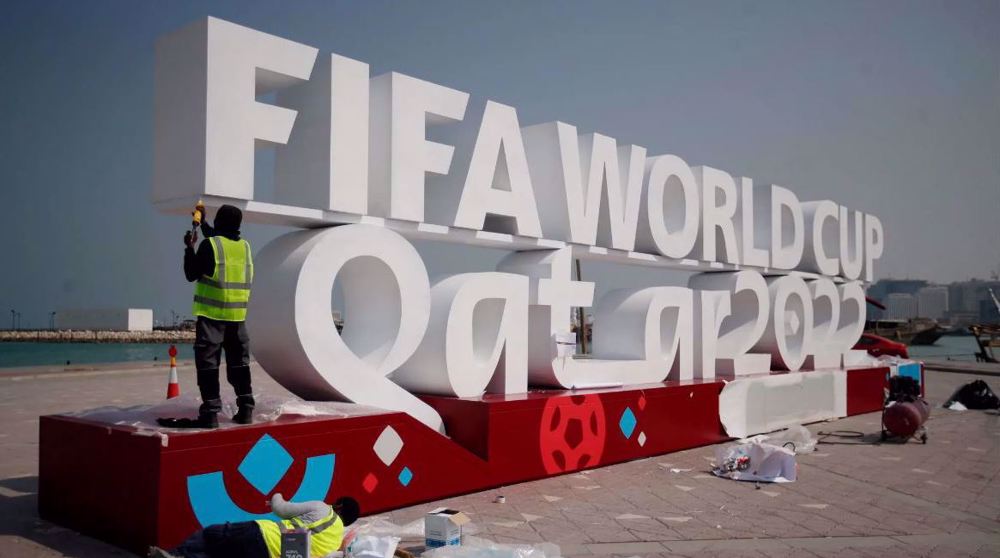
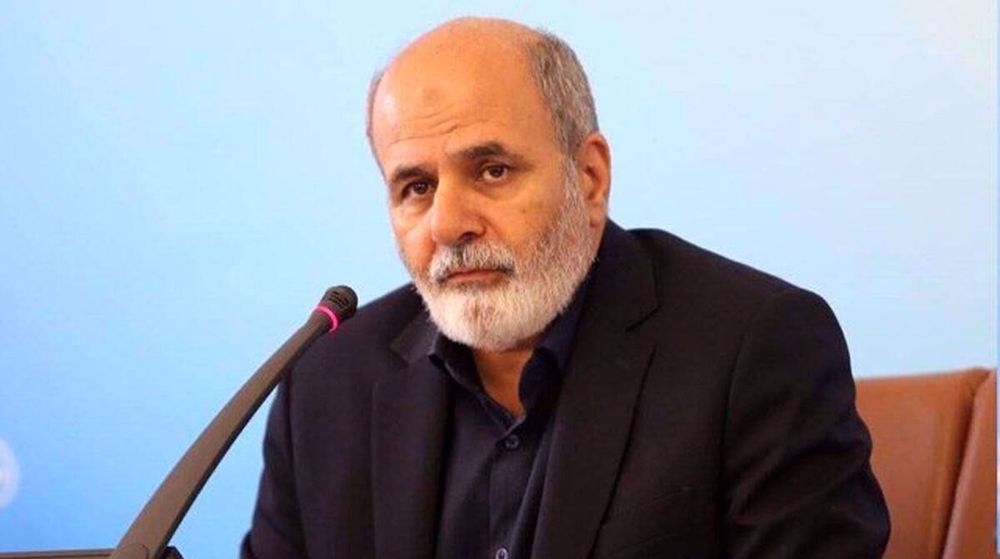
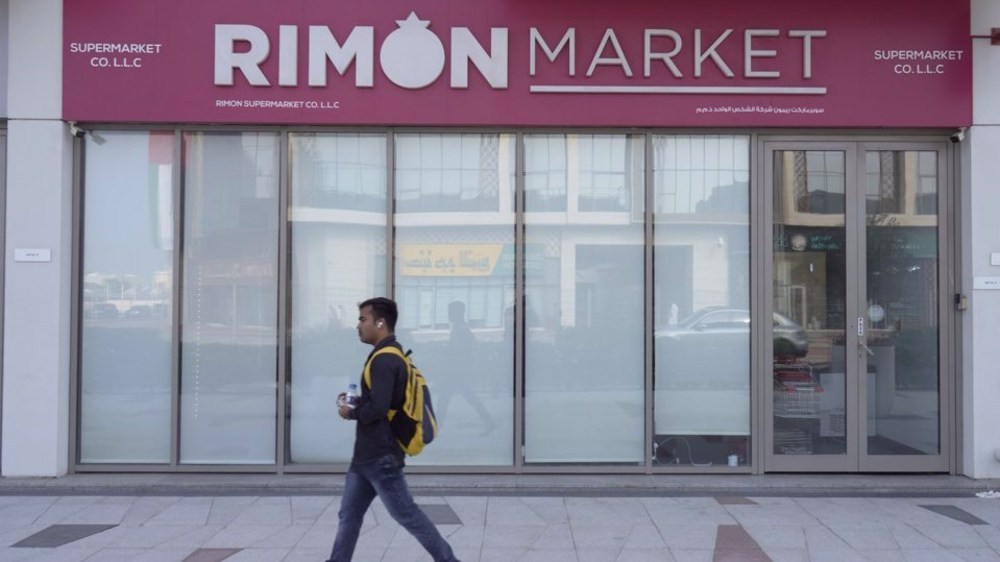




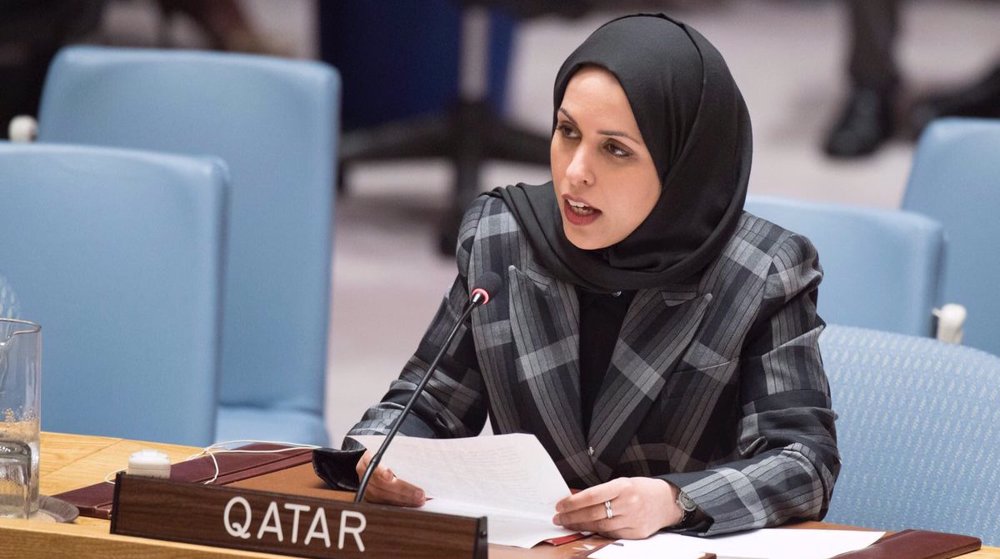
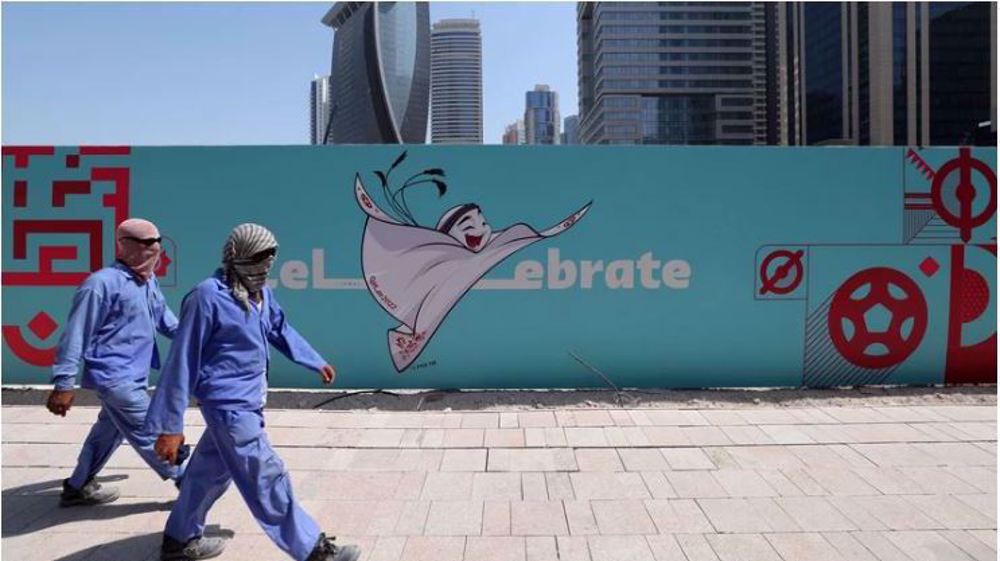

 This makes it easy to access the Press TV website
This makes it easy to access the Press TV website